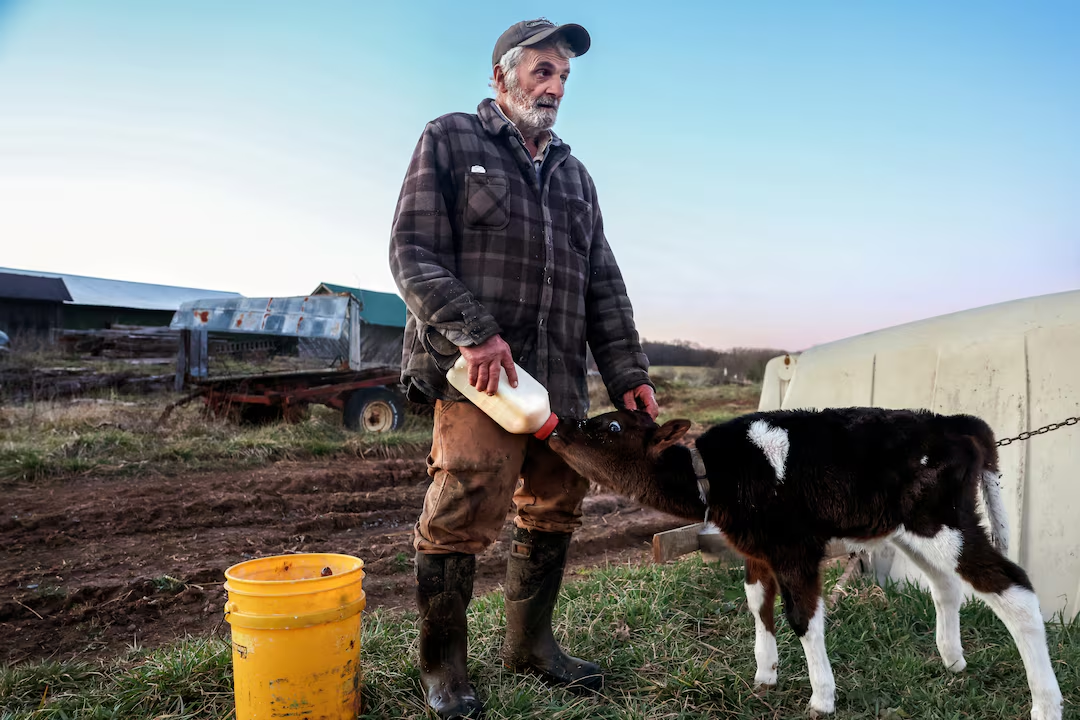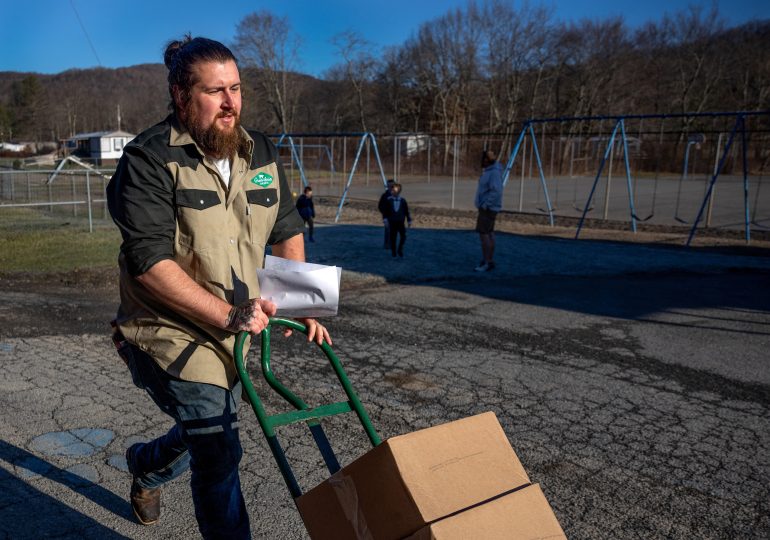Trey Yates, a 27-year-old butter maker from West Virginia, received devastating news when Mountaineer Food Bank canceled his butter contract. The cancellation was a direct result of federal funding cuts, severely affecting his small business. This loss was particularly significant because the federally funded food bank had been one of Yates’ key customers, providing a lifeline to his operations.
The next day, President Donald Trump signed a National Agriculture Day declaration, praising farmers and food producers like Yates. However, these celebratory words seemed in stark contrast to the reality of government cuts that were directly harming small-scale agricultural businesses.
The cuts to programs such as the Local Food Purchase Assistance Cooperative Agreement Program (LFPA) and other USDA funding sources were part of a broader trend under Trump’s administration. These programs were essential to many small agricultural operations, providing much-needed support for food banks, schools, and local farmers.
Yates, along with other rural farmers, faced the brunt of these reductions, especially in West Virginia, where such funding has been crucial to local economies. The federal government’s decision to freeze or eliminate these funds is having a profound impact on rural communities, where agriculture plays a pivotal role in sustaining livelihoods.
Federal Funding Cuts Strain West Virginia’s Budget, Threatening Essential Local Programs
Federal funding has been a critical tool in supporting state and local governments, particularly through “pass-through” grants that distribute federal funds for local needs. This system has been in place for over 200 years and significantly expanded during the 1960s under President Lyndon B. Johnson’s Great Society programs, which aimed to tackle poverty through investments in housing, education, and food access.

However, recent cuts to pass-through funding have had severe consequences, especially in states like West Virginia, where the federal government contributes a significant portion of state revenue. These cuts place additional strain on state budgets, forcing them to find alternative ways to fund critical programs.
West Virginia, where federal funds make up a substantial portion of the state budget, is particularly vulnerable to these cuts. The state’s reliance on federal grants for everything from food programs to education is profound, with more than half of its annual budget coming from federal sources.
Recent cuts have left local organizations scrambling to find alternate funding, with several projects, such as youth nutrition programs and community development projects, now underfunded or completely halted. The impacts are especially felt in the southern part of the state, where poverty rates are high, and access to resources is limited.
Yates’ Family Legacy at Risk as Federal Cuts Jeopardize His Local Food Mission
Trey Yates’ connection to agriculture runs deep, with his family having worked in the dairy industry for generations. His decision to start a small creamery was rooted in a personal mission to provide fresh, local food to schools and food banks, inspired by his own childhood experiences with hunger and community support.
However, the cancellation of key contracts and cuts to federal funding have jeopardized his business, putting his family’s legacy at risk. Despite these setbacks, Yates remains committed to paying off his debts, including money owed to dairy farmer Mike Fogus, whose milk supplies Yates’ creamery.
As the cuts continue to threaten his business and community, Yates’ frustration has grown. During a town hall meeting in Beckley, West Virginia, organized to address the funding cuts, Yates and other concerned citizens expressed their anger over the lack of attention from their elected representatives. Despite invitations, none of the state’s congressional leaders attended, further exacerbating the sense of abandonment felt by many in the room.
Yates, typically non-political, became an outspoken advocate, calling out the administration for its policies that, in his view, were depriving children and vulnerable populations of fresh, local food. His plea for action was met with strong support from the crowd, marking a turning point in his personal and political engagement.

